Archive for the ‘hope’ Category
Reasons to Donate
By: Vicki D., an embryo donor
“In the order of nature we cannot render benefits to those from whom we receive them, or only seldom. But the benefit we receive must be rendered again, line for line, deed for deed, cent for cent, to somebody.’ – Ralph Waldo Emerson, Compensation
On May 13, 2010, I made a decision. It wasn’t your normal everyday decision on things like what shoes to wear, where to have lunch, or which shade of lipstick to buy. It even surpassed those important decisions we encounter in life such as what house to buy, the most lucrative financial investments and selecting the best care for elderly parents. It was a decision much more substantial, incredibly emotional and most importantly, everlasting. It was regarding the fate of our embryos. Yes; five embryos, frozen, suspended in time – a significant and extraordinary reminder of a successful IVF cycle producing twin girls just two years prior. Considering that my family was now complete, the desire to have more children had abated. But the process was far from over and I knew this going in. There are five potential lives to consider currently residing in a sub-zero environment. So the question remained… what did one do with extra embryos when one’s need or desire to expand your family has subsided?
In my quest to determine the future of my five frozen embryos, I discovered several options to choose from. These ranged from permanent storage – or in some cases “abandonment,” destruction, donation to stem-cell research,  donation to the IVF clinic lab, or donation to an infertile couple or person in need. Continued voluntary storage brought unnecessary substantial fees, not to mention the inevitable procrastination of decision making. Abandonment wasn’t an option for obvious reasons as I felt a responsibility towards these embryos. The only things I have ever abandoned in my life were the occasional art project or my first premature marriage in my early twenties. The concept of destruction simply didn’t make logical sense. Why go through all the expense and trouble of creating embryos that one day would be destroyed because there was no better option considered? Stem-cell research or IVF clinic donation seemed like fair choices since I wouldn’t have my twins without past research in IVF. Even so, there had to be a better option available that would help promote the preservation of life and help out infertile couples desperately wanting a baby.
donation to the IVF clinic lab, or donation to an infertile couple or person in need. Continued voluntary storage brought unnecessary substantial fees, not to mention the inevitable procrastination of decision making. Abandonment wasn’t an option for obvious reasons as I felt a responsibility towards these embryos. The only things I have ever abandoned in my life were the occasional art project or my first premature marriage in my early twenties. The concept of destruction simply didn’t make logical sense. Why go through all the expense and trouble of creating embryos that one day would be destroyed because there was no better option considered? Stem-cell research or IVF clinic donation seemed like fair choices since I wouldn’t have my twins without past research in IVF. Even so, there had to be a better option available that would help promote the preservation of life and help out infertile couples desperately wanting a baby.
I remember the years of anguish I experienced being infertile. Everywhere I went I saw pregnant women or newborn babies. It became an obsession, perceived as something so intangible for me yet came so easily for others. There would be no remedy but a child. Why not help another couple expand their family? Why not help end the anguish? Why not “Pay it Forward” to the infertile community in such desperate need? The simplest answers to these questions became the best option.
So the decision came with three stages. Firstly, there was the genetic hurdle to consider. There is something about setting your genetic code, or more specifically, your potential genetic offspring, free into the world that can be somewhat unsettling. Where will these embryos end up, will they survive and what kind of life will they have? Will they know their history? Will they have questions? Will they look like me? But in the greater scheme of things, do these questions really matter?
The value and definition of family transcends any DNA makeup.
In the pursuit of the family unit, we tend to look beyond the genetic code and focus on the family element. The concept of having a family does not automatically equate to comparable genetic material as can be seen with any family with an adopted child. It’s about being part of a team, functioning as a whole and sharing your love and commitment to live and experience life together.
Secondly, there is an element of giving back; Paying it Forward to the infertile world. Donating the embryos was my way of paying back what I was so very fortunate to finally have – a family. Prominent memories of being unfulfilled without children are still fresh in my mind. I honestly believe that donating my idle embryos to someone in need helps to promote the probability of life.
And finally, chance. The chance to help someone build a family, the chance of potential life for the embryo, the  chance for you to give the greatest gift in life, the chance to take a chance! So for any of you out there who find yourselves with important decisions to make about your embryos in storage, think back a bit to your own infertile days. That memory will help guide you to do the right thing for someone with the same needs and desires as you have. Take a chance and do something good for humanity.
chance for you to give the greatest gift in life, the chance to take a chance! So for any of you out there who find yourselves with important decisions to make about your embryos in storage, think back a bit to your own infertile days. That memory will help guide you to do the right thing for someone with the same needs and desires as you have. Take a chance and do something good for humanity.
Donating the embryos was my way of paying back what I was so very fortunate to finally have – a family.
In the end I trusted Embryo Donation International (EDI) and Dr. Sweet with my precious embryos. I knew that with their high ethical standards and sheer devotion to the embryo they would give my embryos a chance at life, and hopefully help to build another family, just like they helped to build mine. And on every Mother’s Day ever since the donation I hope and wonder that by liberating my embryos they were able to help create another family somewhere out there and that they are as happy as I am.
Vicki D.
Mom, a Loving Wife and now, an Embryo Donor
torig71@gmail.com
Parent via Egg Donation – Parent via Embryo Donation

Marna Gatlin of PVED
Exploring what we know – Marna Gatlin, Founder Parents via Egg Donation and guest blogger
I was asked recently what I thought about embryo donation vs. egg donation. Is a parent via egg donation the same as a parent via embryo donation? What do they have in common? Or are they very different?
My knee jerk reaction was “Well doh, of course they are the same. They are both embarking upon a unique journey to become parents right?”
When I thought more about it, the word “versus” jumped out at me. Did the individual asking the question really mean “versus” as in against, or in contrast to?
Are the two mutually exclusive?
When I think of egg donation and embryo donation, I think about the word “AND” – I don’t think of it as an either or. Both are just different ways of either growing or adding to your family.
Some approach embryo donation with great trepidation because they worry about the bonding process, or about the explanation or story they will be sharing with their child. The reality is – the path might be different but at the end of the day the goal is the same – you are becoming a parent.
Let’s delve a little deeper. If you receive a donor egg, the genes of your baby are going to be combined with the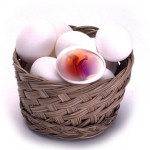 genes of your husband (or partner) and those of your egg donor. Or if you are a single mother, or women in a same sex relationship, the donor egg will be combined with donor sperm. You will probably undergo what we call a fresh embryo transfer. You will carry that baby for nine months and then deliver that baby. Women often wonder if there’s a down side to carrying a baby that is not genetically related to them. You know this is an age old question that’s been asked and answered since the early 80’s when the first donor egg child was conceived, carried, and delivered. I can tell you as a parent via egg donation myself that it doesn’t matter. I carried my son for nine months. The bond I created with him is rock solid, loving, and he’s my son. The lack of genetic connection simply doesn’t matter. Not one iota. The very same thing happens with embryo donation recipient parents who are receiving truly a meaningful gift of life.
genes of your husband (or partner) and those of your egg donor. Or if you are a single mother, or women in a same sex relationship, the donor egg will be combined with donor sperm. You will probably undergo what we call a fresh embryo transfer. You will carry that baby for nine months and then deliver that baby. Women often wonder if there’s a down side to carrying a baby that is not genetically related to them. You know this is an age old question that’s been asked and answered since the early 80’s when the first donor egg child was conceived, carried, and delivered. I can tell you as a parent via egg donation myself that it doesn’t matter. I carried my son for nine months. The bond I created with him is rock solid, loving, and he’s my son. The lack of genetic connection simply doesn’t matter. Not one iota. The very same thing happens with embryo donation recipient parents who are receiving truly a meaningful gift of life.
The most beautiful aspect of embryo donation to me is that embryos that are being placed for donation are done so purposely. These are embryos that the donating parents know have created amazing children who are loved, honored and cared for. These donating parents want to make sure their embryos are donated to a home that will love, cherish and honor the resulting children as they would. Regardless of whether an individual has a child via egg donation or embryo donation, the fears of parenthood almost always focus on the unknowns. And here’s a secret: they are also experienced by those who are conceived naturally. Moms and Dads all over the world have the same worries about parenting as do parents via egg donation and embryo donation.
Parents via egg donation often ask questions such as:
- Am I going to screw up my child?
- Will my child love me?
- How am I going to relate to my child?
- Will my parents and other family members accept my child?
- How and when will I share information about their conception?
When we look at embryo donation the questions that we find unique to embryo donation are:
- Are we protected legally, can the donating parents come back and claim our child in the future? (The answer is NO, they cannot. That’s why it’s important to have a clear legal contract.)
- Will my child have access to information about his or her health in the future?
- Will my child have siblings and if so, will they have the opportunity to know them?
- Will my child or children see me as their real parent?
- How will I explain this to my family or friends?
- What about stupid comments from those around me?
- How and when will I share the information about my child’s conception with my child?
To me there is no difference between being a parent via egg donation or a parent via embryo donation. The end result is the same.
At the finish line we are simply Mom and Dad.
Marna Gatlin
Parents via Egg Donation
www.PVED.org | marna(at)pved.org
A little bit about Marna…
After many years of struggling with infertility, PVED founder Marna Gatlin discovered that the technology to have a child through egg donation was available. She was curious, excited, and above all, hopeful that this process might be the conduit to finally achieving her lifelong dream of becoming a parent.
Marna ensures that all the needs of egg donor recipients are met, maintaining a high standard of ethics and confidentiality. Marna advocates and assists recipient parents, helping them arrange for the highest quality patient care, wherever in the world they reside. Her experience and knowledge related to the complex emotional and physical needs of individuals dealing with infertility makes her an essential asset PVED.
As a previous recipient, Marna is uniquely qualified to provide caring and timely services. Marna is truly dedicated to compassionately guiding couples experiencing infertility through their treatment process.
Marna is joined by several dedicated and knowledgeable support staff that all work together clearly dedicated to see the success of PVED. These include clinical psychologists, reproductive endocrinologists, attorneys, as well as a talented business and public relations team.
Marna attended Eastern Oregon University and Portland State University majoring in Business, Psychology, Social Science, and is a member of the American Society of Reproductive Medicine (ASRM), the European Society of Human Reproduction and Embryology (ESHRE) and the Society for Assisted Reproductive Technology (SART). Marna, a writer, is married, has a son, and does some of her best thinking and creating atop of her John Deere tractor mowing and cultivating her back forty.
How Does Embryo Donation International Rank Embryo Recipients?
Unfortunately, there are far more potential embryo recipients than donated embryos. While in this country alone, hundred of thousands of embryos are stored in liquid nitrogen, (Hoffman DI, et. al, 2003), less than ten percent and frequently less than five percent are donated to patients in need (Klock SC, et al., 2003). As a result, we often have a waiting list of recipients asking for donated embryos.
First, EDI doesn’t discriminate with respect to race, religion, ancestry, sexual preference or 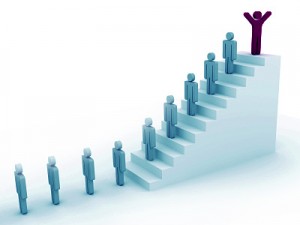 marital status. We also try to be fair to existing EDI patients and to those who have yet to become established patients. We basically are looking for potential embryo recipients who have few other reproductive options available. If one views donated embryos as an essentially rationed commodity, we want to make certain that patients in greatest need are ranked the highest. We try to do this in an ethical and fair fashion but ranking them can be a challenge.
marital status. We also try to be fair to existing EDI patients and to those who have yet to become established patients. We basically are looking for potential embryo recipients who have few other reproductive options available. If one views donated embryos as an essentially rationed commodity, we want to make certain that patients in greatest need are ranked the highest. We try to do this in an ethical and fair fashion but ranking them can be a challenge.
While not absolute, below is a general ranking from high priority to lower priority in our general waiting lists:
- The intended parents have no delivered children and limited financial means with few options available.
- Their only child died and no other siblings exist.
- One of the partners raised a child with a different partner.
- Both of the partners raised children with different partners.
- Both partners raised one adopted child together.
- Both partners raised one (genetic) child together.
- Both partners raised children with other partners and one (genetic) child together.
- Both partners raised multiple (genetic) children together.
We define a “genetic child” as a child whose genes came from the parents themselves without the use of donated material and also not an adopted child.
Here are some of the questions we also commonly ask in trying to decide where the patients should rank on our waiting lists:
- How long have they been on the waiting list?
- Are they established patients with EDI or have never been seen before?
- Are there other less expensive and viable options such as donor sperm?
- What have the patients gone through during their infertility journey?
- Is adoption of a live child a possibility?
- Are there financial constraints that makes embryo donation far more feasible over other more expensive options?
Also, we actually have multiple lists broken down by the following major categories:
- Type of embryo donation: Anonymous, Approved and Open Embryo Donation
- Marital status/sexual orientation: Single woman, single man (very rare), heterosexual couple (married/unmarried), lesbian couple and gay couple (married/unmarried).
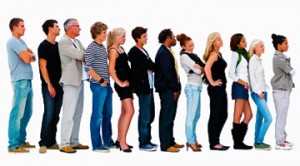 As you can see, the process of ranking can get a bit complicated. Our highest priority is healthy embryo recipients who have never had children of their own and have very few fertility options with limited financial means. For example, this group may include cancer survivors who have been left infertile due to the disease or treatment. In many states, cancer survivors find adoption of a child extraordinarily difficult, so embryo donation may be their only option for building a family. We also tend to rank patients higher who have undergone extensive unsuccessful IVF treatments and egg donation is their only remaining option, but due to financial constraints, are unable to afford the procedure.
As you can see, the process of ranking can get a bit complicated. Our highest priority is healthy embryo recipients who have never had children of their own and have very few fertility options with limited financial means. For example, this group may include cancer survivors who have been left infertile due to the disease or treatment. In many states, cancer survivors find adoption of a child extraordinarily difficult, so embryo donation may be their only option for building a family. We also tend to rank patients higher who have undergone extensive unsuccessful IVF treatments and egg donation is their only remaining option, but due to financial constraints, are unable to afford the procedure.
While we do not exclude patients who have raised children, some requests come from parents with numerous children in their current family. We are actually not looking for potential embryo recipients who are trying to “save” donated embryos. We wish we had enough embryos for everyone, but until we have more embryos than applicants, we will continue to prioritize patients who have never raised children higher than those who have previously experienced the joys of parenthood. We will not exclude such patients, they will be ranked far lower than others on the priority scale.
While some patients who approach EDI have no children, they may have several other fertility options. For example, a young couple that is infertile due to severe male factor infertility, may best be served with sperm donation. Donor sperm generally is less expensive and faster than embryo donation and they can have more than one child using the same donor. We would prefer to save the donated embryos for patients with few available options.
We hope that our readers will understand our basic goals. For any rationed commodity, we want to save it for those in greatest need. If one pictures the embryos as rare, precious and hard to come by, one can imagine why a fair ranking system must be developed.
Ranking systems are never perfect and often seem unfair to those who receive lower rankings. It is difficult to explain a lower ranking to a patient who is desperately seeking to build or expand their family, however, once separated from the emotional aspect, it is usually agreed that a ranking system is needed to fairly as many patients that we can who are seeking donated embryos.
In summary, we feel that a ranking system is necessary to achieve our goal of matching donated embryos to patients in need in an ethical and fair fashion. In a perfect world, infertility wouldn’t even exist and there would be enough donated embryos to meet the demands of those asking for donated embryos. In today’s realistic world, however, the precious gift of donated embryos is simply not given often enough to meet the demands of those seeking donated embryos. Perhaps someday ,though education and research, the number of patients offering their embryos for donation will increase to such a level that we may be able to eliminate or at least trim back segments of our ranking system. Until that day comes, we will have to do our best to assist in matching patients in need to donated embryos in the most ethical and fair fashion we can.
Shelley Osking, L.P.N.
Embryo Donation Coordinator
Shelley@EmbryoDonation.com
Corey Burke, B.S., C.L.S.
Laboratory Supervisor
CBurke@EmbryoDonation.com
Craig R. Sweet, M.D.
Reproductive Endocrinologist
Founder, Medical and Practice Director
Info@EmbryoDonation.com
Hoffman DI, et al. Cryopreserved embryos in the United States and their availability for research. Fertil Steril 2003;79:1063-9.
Klock SC, et al. The disposition of unused frozen embryos [letter]. N Engl J Med 2001;345(1):69-70.
Hope & Will Have a Baby – Book review by Craig R. Sweet, M.D.
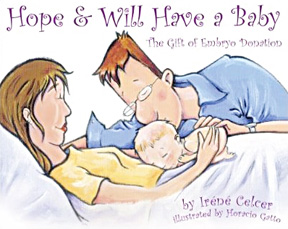 This book is one of a collection of third party conception children’s books written by the same author and illustrator and published by Graphite Press, copyright of 2006. It is one of the only books I have seen for children conceived though embryo donation.
This book is one of a collection of third party conception children’s books written by the same author and illustrator and published by Graphite Press, copyright of 2006. It is one of the only books I have seen for children conceived though embryo donation.
Ms. Celcer is a mental health professional that feels it is important to be up front in telling the children of embryo donation about their origin. In her forward, she cites the past secrets in adoption causing harm. She goes on suggesting that-
- • Children somehow sense the secrets
- • The failure to divulge may create shame in the parents of donated embryo offspring
- • Failure to tell a child results in a loss of pride of their beginnings
This book is to be used to tell the children about their loving conception while trying to manage the complex emotions of the parents.
Through the eyes of Hope and Will, a young married couple in love, the book explains what a “special place” the uterus is and how  embryos are created. Hope and Will experience infertility, depression and probably some grumpiness (can you imagine?). They seek help through Dr. Quest, who gives Hope tablets, pills and shots, but to no avail. Embryo donation is discussed, explaining anonymous and open options in simple and easy to understand terms.
embryos are created. Hope and Will experience infertility, depression and probably some grumpiness (can you imagine?). They seek help through Dr. Quest, who gives Hope tablets, pills and shots, but to no avail. Embryo donation is discussed, explaining anonymous and open options in simple and easy to understand terms.
Hope and Will conceive though embryo donation. The author emphasizes love, pride and excitement when the delivery finally takes place. Hope and Will are clearly grateful to their donor couple whom they have never met. Enough information is provided about the donors to help the child understand his origin.
While perhaps a little complex for a young child of four or five, the book might work quite well for a slightly older child. The pictures are wonderful and the emphasis on love and the desire to have a child by whatever means necessary is well done. I have always suggested that if parents tell the child, they should highlight their tremendous desire to have and love that child, as well as how hard they worked to bring such a wonderful child into their home.
Disclosure in embryo donation is a periodic theme of a number of my blogs. Adoption is clearly different than embryo donation. Adoption tends to be well accepted by most of the world’s religions. If embryo recipients tell friends, family and their donor-conceived offspring, there may be significant repercussions. Will the recipients and offspring be criticized, ostracized or, even, excommunicated by these same people or by their own religion?
Unfortunately at this time, I simply don’t believe we have enough data to make a clear recommendation to embryo recipients although there is wonderful ongoing research that will hopefully help to answer this question. For now, extrapolating what we have learned from adoption may simply not be appropriate for embryo donation, although passions on both sides of this issue 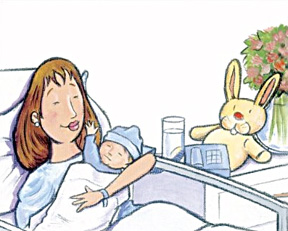 abound. The long-term consequences of secrecy vs. total openness to friends, family and the child of embryo donation are essentially unknown and I feel this decision needs to be made carefully with consultation with skilled mental health professionals (and Ms. Celcer is one of them), reproductive endocrinologists and perhaps, most importantly, recipients that have already traveled this journey.
abound. The long-term consequences of secrecy vs. total openness to friends, family and the child of embryo donation are essentially unknown and I feel this decision needs to be made carefully with consultation with skilled mental health professionals (and Ms. Celcer is one of them), reproductive endocrinologists and perhaps, most importantly, recipients that have already traveled this journey.
Selling for about $20 at Barnes & Noble, the purchaser should know this is a paperback and only 28 pages. The reader is clearly paying for the content and not story length or volume.
I highly recommend this book for those parents who decide to tell their child they were conceived through embryo donation, although the story line may need to be changed for single women and gay and lesbian couples. For the lucky parent(s) of embryo donation, this is a fairly good place to start if disclosure is the path they choose to follow.
Craig R. Sweet, M.D.
Founder, Medical & Practice Director
Embryo Donation International
Safe Travels on Your Infertility Journey
 By Dr. Craig R. Sweet, Medical Director & Founder
By Dr. Craig R. Sweet, Medical Director & Founder
I sit here wondering what I can write about that others will not already be commenting on during this very busy and important National Infertility Awareness Week for those traveling the infertility journey. But after over 20 years of taking care of tens of thousands of patients, I have developed a few philosophical perspectives and “rules of the road” and I want to share with you.
Don’t Wait Until All Your Ducks Are in a Row
First, a woman’s ability to conquer the world does not necessarily transfer to conquering the biologic clock that endlessly ticks forward. My IVF patients already are arriving at my doorstep at an average age of close to 37, which puts them at a significant disadvantage. If I could encourage young women to do anything, it would be to try to start their families earlier. If they wait to have all their “ducks in a row,” they may never see their little ducklings.
Hollywood is rife with women conceiving late in life, but they rarely tell anyone that they used donated eggs, not that it is our business. Please, I implore women around the world to have their children sooner and not depend on our modestly advanced technologies to prevail when nature argues differently.
Seek Knowledge Sooner Rather Than Later
Second, if you are having problems conceiving, see a knowledgeable local reproductive endocrinologist sooner rather than later. Don’t be  pressured to start a more intensive evaluation or procedures one day earlier than you are ready but seek knowledge sooner. Obtain an opinion from someone you trust to see where you stand and to get a glimpse into your reproductive future. At the risk if alienating some referring physicians, do not be satisfied with seeing general OB/GYN physicians or Urologists to seek solid information should problems be found. Knowledge is power; obtain it quickly with experts who live and breath your issues each and every day.
pressured to start a more intensive evaluation or procedures one day earlier than you are ready but seek knowledge sooner. Obtain an opinion from someone you trust to see where you stand and to get a glimpse into your reproductive future. At the risk if alienating some referring physicians, do not be satisfied with seeing general OB/GYN physicians or Urologists to seek solid information should problems be found. Knowledge is power; obtain it quickly with experts who live and breath your issues each and every day.
Don’t Be Afraid of the Unknown
Third, don’t be afraid of what you might find. Take a deep breath and learn the truth. I see far too many patients that fear for too long, only to find out their fears were incorrect, or that their delay significantly impaired their overall chances for success while inadvertently increasing their costs to succeed. Be brave, find support and gain knowledge quickly. Do not be afraid. This is absolutely directed at both the male and female patients.
In Closing
I will leave it up to RESOLVE and many other organizations to do what they do best: organizing patients to speak with one united voice during this very important week. During this week of attention, a philosophical perspective may really be of some benefit hopefully heard among the din of all the other conversations.
Infertility is a journey and what journey should start without a few rules of the road?
Craig R. Sweet, M.D.
Founder, Embryo Donation International
Reproductive Endocrinologist
Medical & Laboratory Director